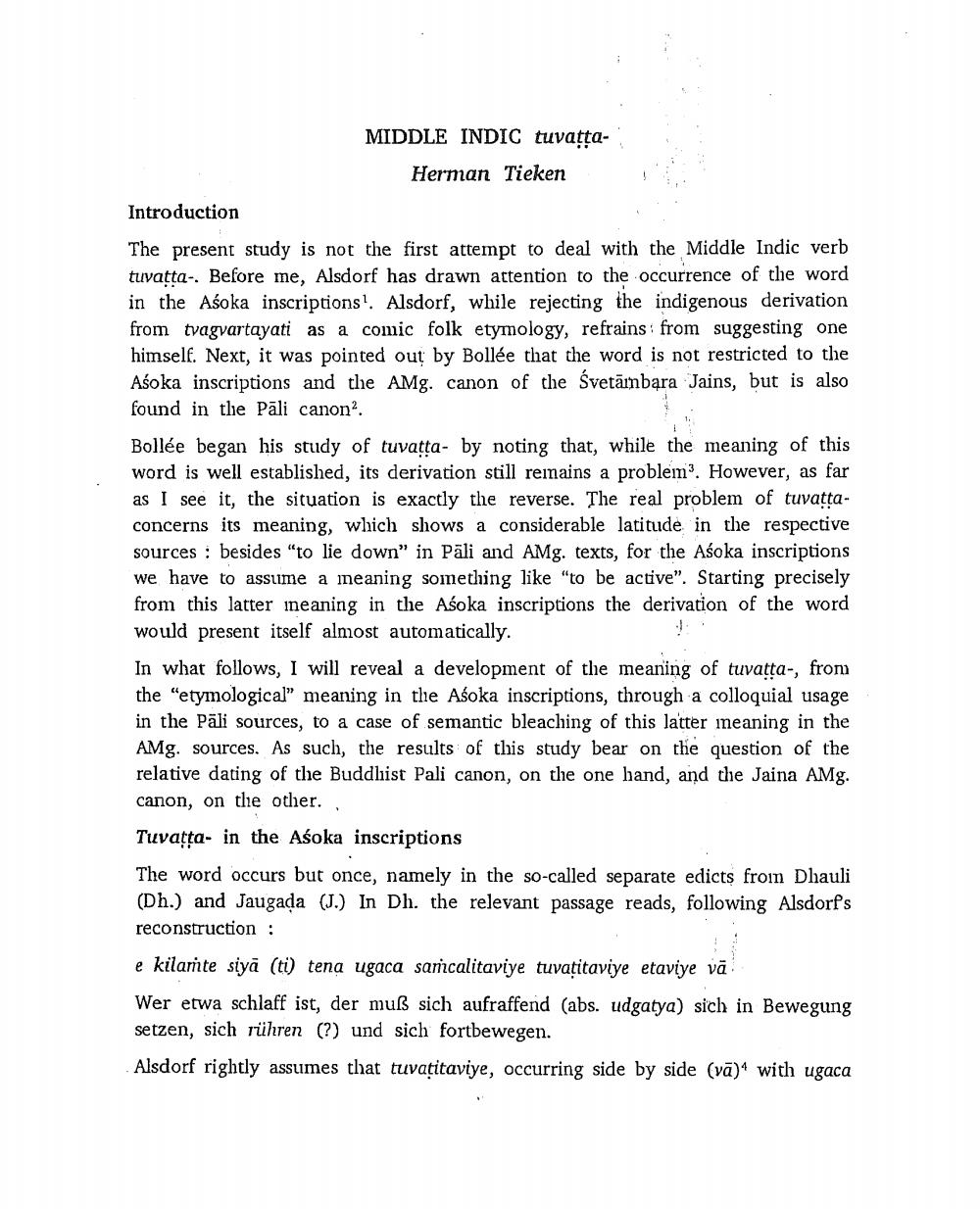________________
MIDDLE INDIC tuvatta
Herman Tieken Introduction The present study is not the first attempt to deal with the Middle Indic verb tuvatta-. Before me, Alsdorf has drawn attention to the occurrence of the word in the Aśoka inscriptions! Alsdorf, while rejecting the indigenous derivation from tvagvartayati as a comic folk etymology, refrains from suggesting one himself. Next, it was pointed out by Bollée that the word is not restricted to the Asoka inscriptions and the AMg. canon of the Śvetämbara Jains, but is also found in the Pāli canon?. Bollée began his study of tuvatta- by noting that, while the meaning of this word is well established, its derivation still remains a problem?. However, as far as I see it, the situation is exactly the reverse. The real problem of tuvattaconcerns its meaning, which shows a considerable latitude in the respective sources : besides "to lie down" in Päli and AMg. texts, for the Aśoka inscriptions we have to assume a ineaning something like "to be active". Starting precisely from this latter ineaning in the Aśoka inscriptions the derivation of the word would present itself almost automatically. In what follows, I will reveal a development of the meaning of tuvatta-, from the "etymological" meaning in the Aśoka inscriptions, through a colloquial usage in the Pāli sources, to a case of semantic bleaching of this latter ineaning in the AMg. sources. As such, the results of this study bear on the question of the relative dating of the Buddhist Pali canon, on the one hand, and the Jaina AMg. canon, on the other.. Tuvatta- in the Asoka inscriptions The word occurs but once, namely in the so-called separate edicts froin Dhauli (Dh.) and Jaugada (J.) In Dh. the relevant passage reads, following Alsdorfs reconstruction : e kilarte siyā (ti) tena ugaca samcalitaviye tuvațitaviye etaviye vā Wer etwa schlaff ist, der muß sich aufraffend (abs. udgatya) sich in Bewegung setzen, sich rühren (?) und sich fortbewegen. Alsdorf rightly assumes that tuvatitaviye, occurring side by side (vā)4 with ugaca




